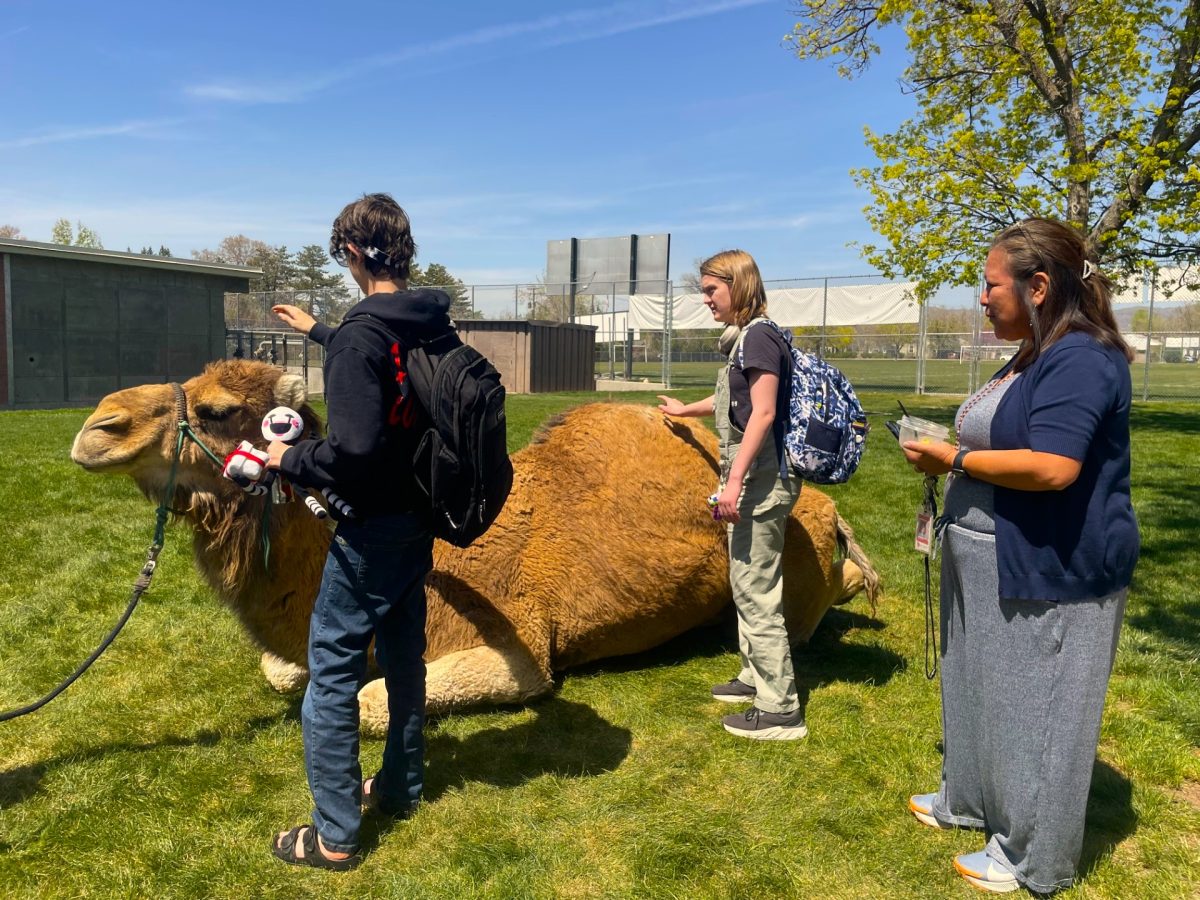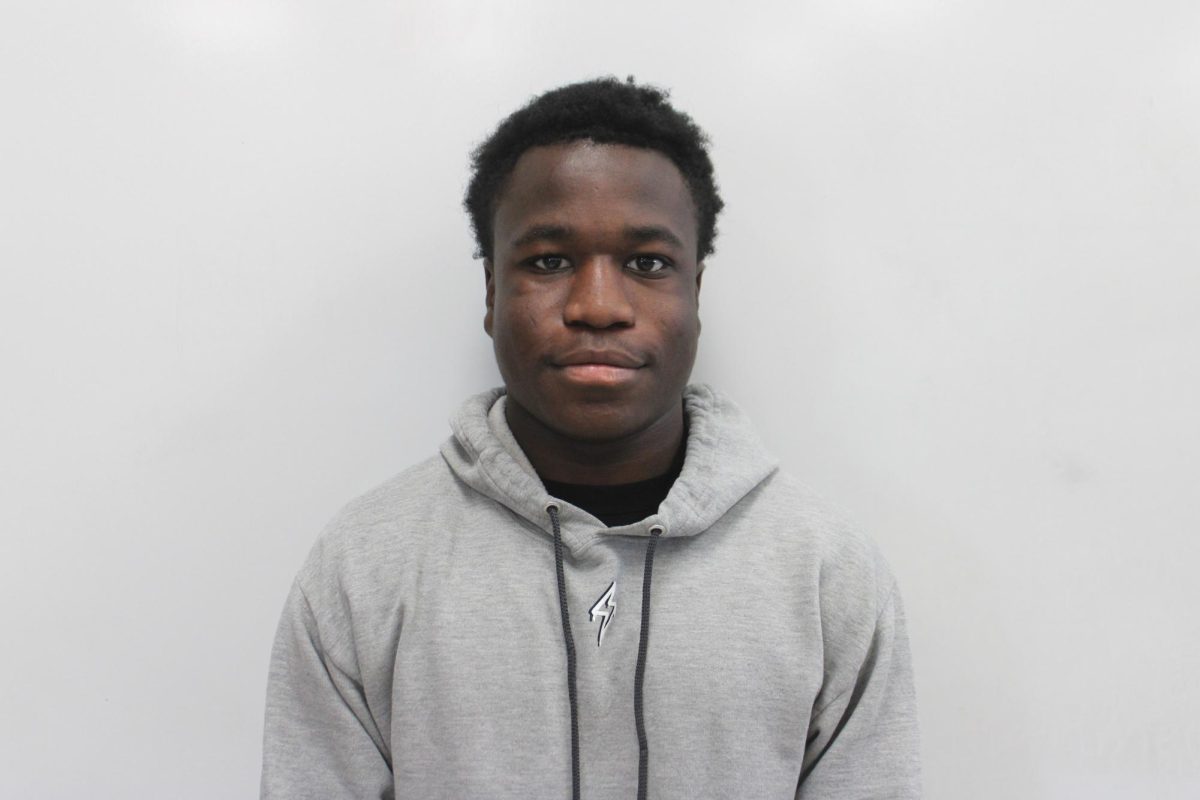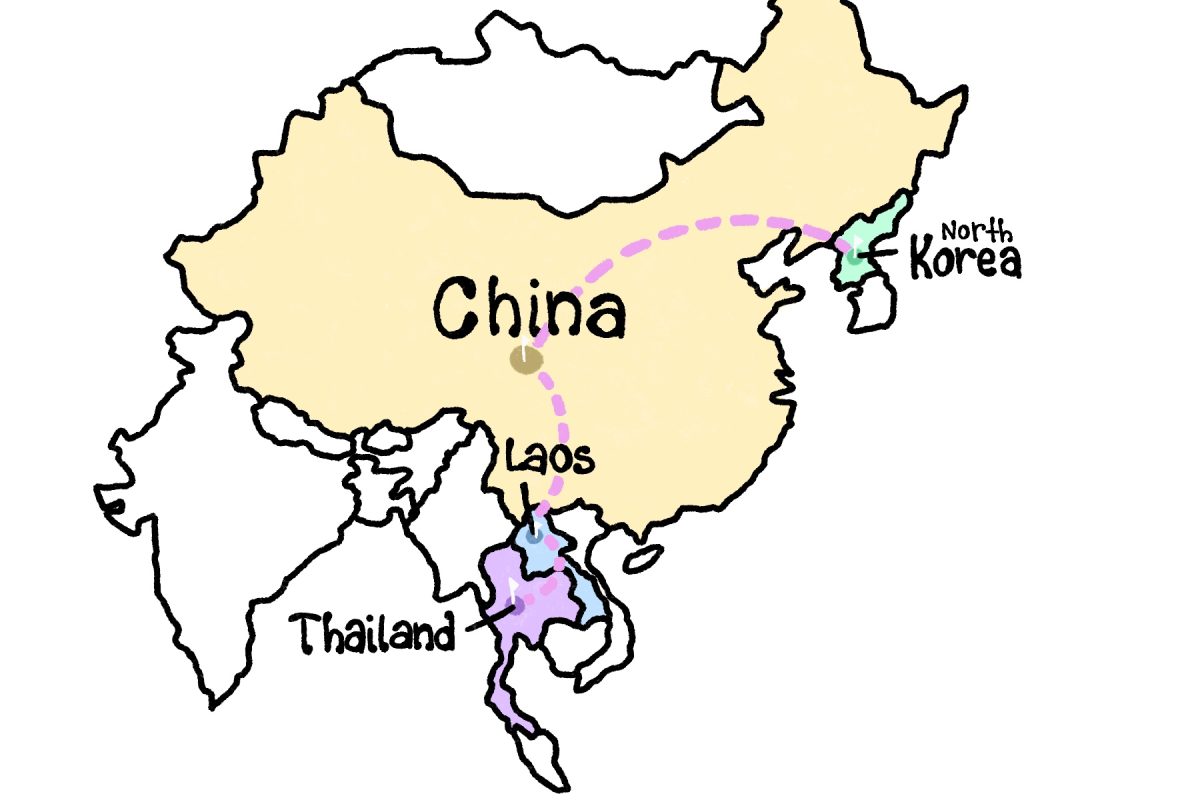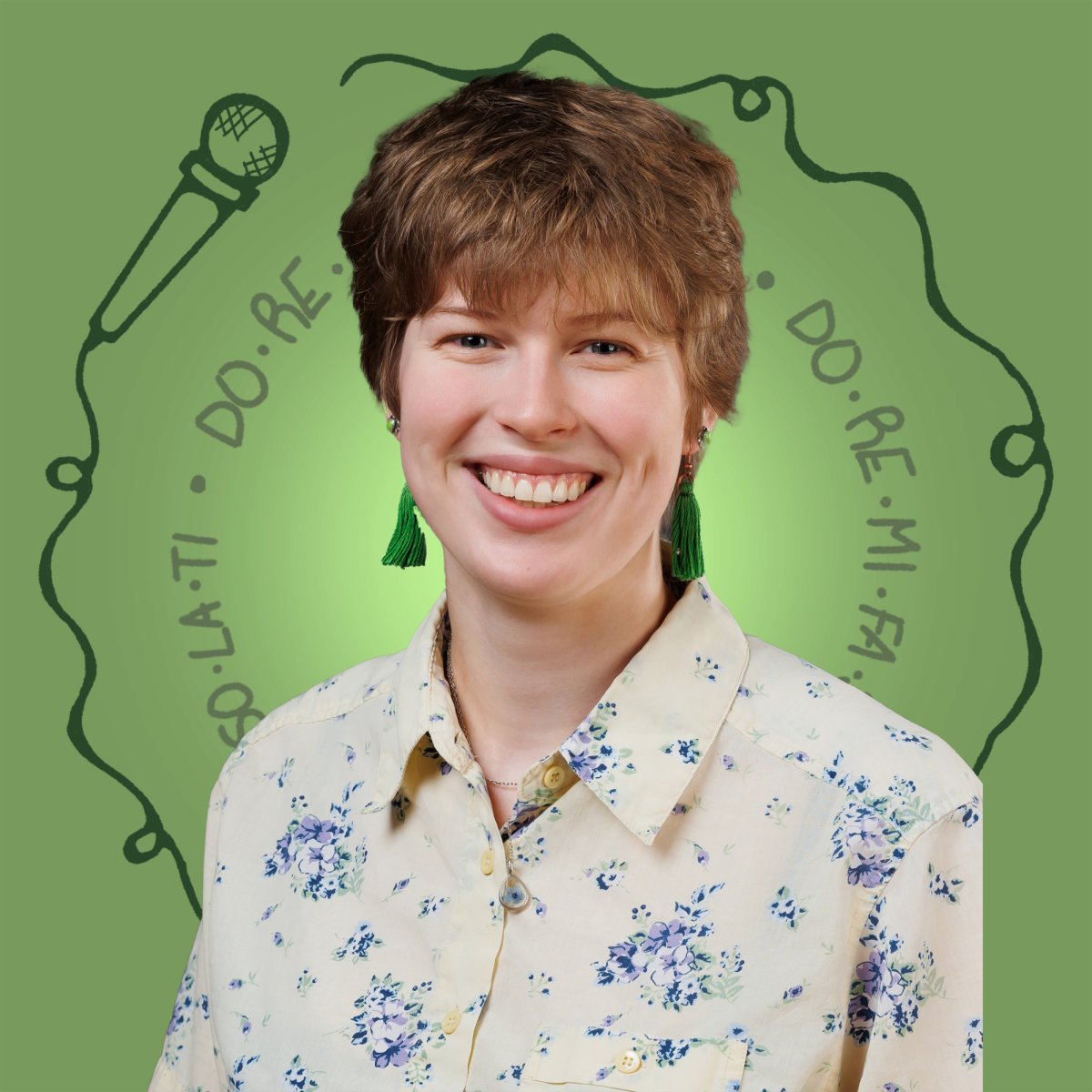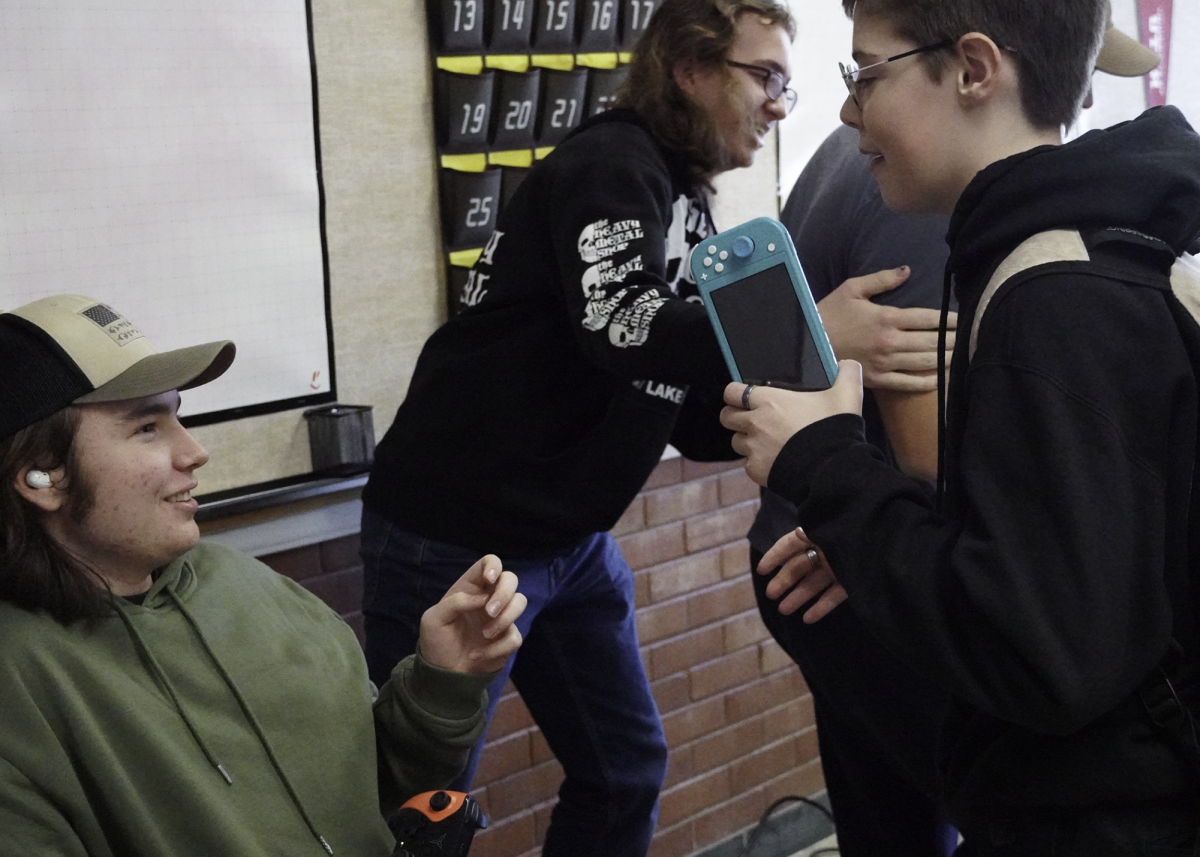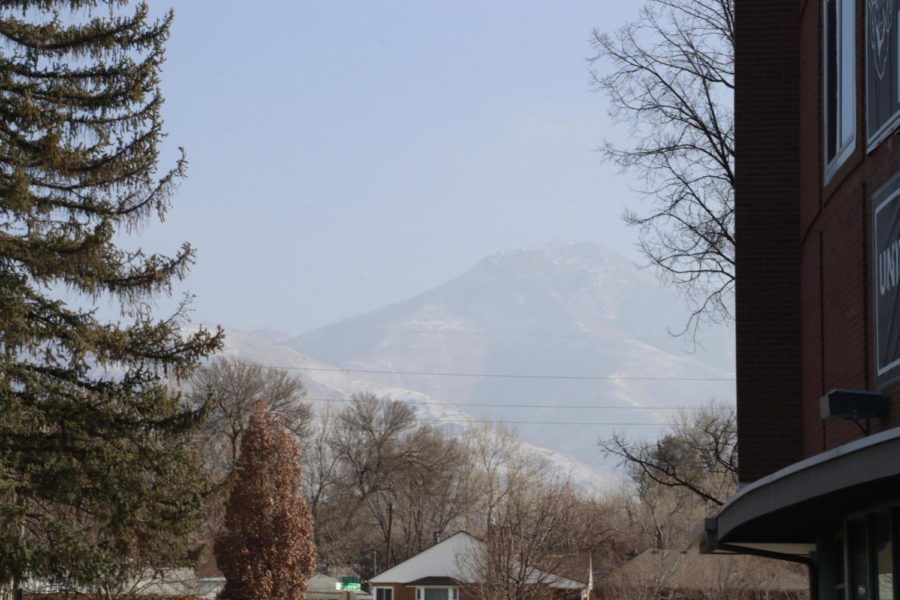The Solution To This Problem Is a Little Smoggy
Bad air quality can pose a serious health concern to people in the valley.
December 15, 2017
Up in Holladay, on the east bench, the trees are covered in what appears to be a layer of glittering frost.
In reality, that frost is a poison in disguise, leaving an oily residue in its wake, a crystallized form of the pollution that has been haunting our skies and our lungs. Every day I step outside, the skies are heavy with pollution, blocking out the light like a curtain. Seeing the toll inversion is taking on our environment makes me wonder what it could possibly be doing to our own bodies; this is the air we breathe, after all.
We can all see the smog that has taken residence in the valley, but I can’t help but wonder if people truly know what inversion is.
Typically, cold air and warm air circulate regularly but when winter comes, something referred to as a “high” settles over the valley, trapping the cold air under the warm air.
“We live in the soup bowl of all the junk we create,” Monica French, the environmental science teacher at Highland, said.
However, the real problem behind the pollution is particulate matter. A big and intimidating word, to be sure, but when it comes down to it, particulate matter really isn’t anything extraordinary.
“Just little bits of stuff,” French said.
There’s really no better way to explain it. The pollution and inversion we are seeing everyday is simply trapped particulate matter (little bits of stuff). About 50 percent of this particulate matter comes solely from our very own transportation.
Now, there are always going to be “little bits of stuff” in our air, however, the problem occurs when the diameter of the particles becomes 2.5 micrometers.
“Small enough to get into the lungs and past the barrier,” French said.
Despite the effect it’s obviously going to have on anyone who breathes, this air is far more detrimental to those without perfect lungs. The average person tends to feel it in the eyes, throat, and nose, causing a fair amount of irritation, but the real problems arise for those who have had lung breaches in the past, or are still developing and growing.
Asthma is one of the best examples of this. Though the exact cause of asthma is still unknown, it is believed to be passed down genetically. People with asthma are susceptible to both long term and short term problems fueled by pollution of coughing, wheezing, and a burning in the chest that can overall lead to more frequent or violent attacks.
As someone with asthma, I know the way that burning and wheezing feels and I dread the increased possibility of an attack.
Elena Ryan runs three miles every day for physical therapy, but the irony of her running to get healthy could also make her very sick because of the air around us.
“I was fine in the summer,” Ryan said.
It’s no longer the summer, and the looming threat of inversion has clouded Ryan’s positivity. It was just a few days ago when Ryan passed out. She was on her run, as per usual, when she started to feel the burning in her lungs. Soon the burning turned to coughing before she eventually collapsed.
Elana isn’t the only one.
According to the Utah department of health, in a Utah population of 100,000 people, between 3 and 14 of those people will be admitted to an emergency department for pollution illnesses per month.
So what can we do?
Changing the air we breathe, unfortunately, will never be easy. We have created habits and ways of living for ourselves that seem almost impossible to change. Sadly, pollution will not go away overnight, and as much as I’d love to stop using cars completely, we live in a world where that doesn’t seem possible.
So let’s start with the small things.
I don’t think we realize how many products in our life contribute to the polluted air. Housing electricity to the smallest of cleaning chemicals are all factors. Even the simplest of changes like; less idling, choosing environmentally friendly cleaners, and using electric or hand powered equipment can lessen the particulate matter in our air.
It may seem like nothing, but we need to start somewhere.
We need to start now.


